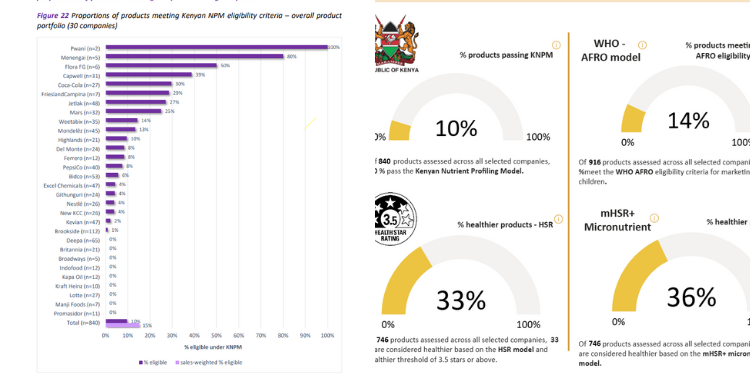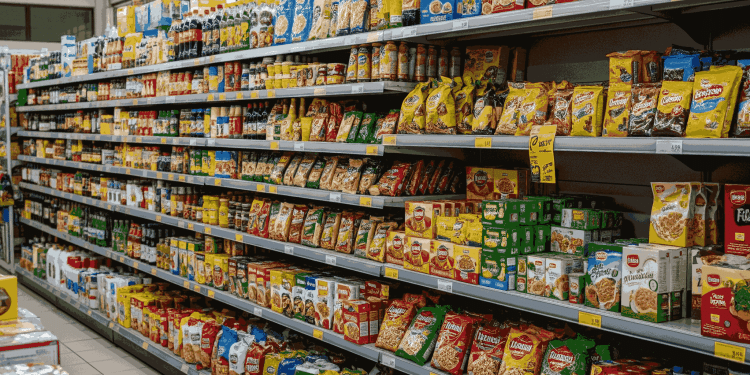Access to Nutrition Initiative (ATNi) has conducted Kenya’s first independent assessment of the nutritional quality of packaged food and beverages sold by 30 major companies.
This assessment sheds light on the nutrition commitments and practices of Kenya’s largest food and beverage manufacturers.
In the report, ATNi said only 10% pass the Kenyan Nutrient Profiling Model (NPM).
Out of this, 15% are sales-weighted and would not require one or more warning labels.
This means that 90% do not meet the Kenyan NPM and require warning labels.
“A low proportion of food products (10%) offered by the companies were eligible under the Kenyan NPM criteria, increasing to 15% following sales-weighting,” reads the report.
The report showed that no company was found to commit to using health or nutrition claims only on products that meet specific nutrition criteria, like passing an NPM.
Similarly, no company has committed to implementing front-of-pack (FOP) labelling in Kenya.
“90% of products assessed using the KNPM would require an FOP warning label under proposed regulations,” ATNi added.
Packaged Food Rankings & Other Observations
ATNi observed different rankings under the Kenyan NPM compared to the Health Star Rating (HSR) and WHO AFRO criteria.
Pwani was ranked first with 100% of their two dairy products eligible, followed by Menengai with 80% of their portfolio eligible.
Nine companies had zero products eligible under this model.
Beverage products overall only had 8% of products eligible.
Bottled Water and Processed Fruit and Vegetables had the highest proportion of eligible products.
Eight categories had zero products eligible under the Kenyan NPM.
Also Read: How the Food You Eat Everyday is Slowly Killing You
Overall Healthiness
ATNi said overall healthiness is low across the 30 companies, with substantial variation between companies.
Only 33% of 746 products meet the ‘healthy’ threshold under HSR (≥3.5 stars), rising to 38% when weighted by sales.
Incorporating micronutrients (mHSR+) increases these figures to 36% and 42% respectively.
WHO AFRO warned that just 14 percent of products, and 23 percent when sales-weighted, are eligible to be marketed to children.
The reports revealed that the confluence of related trends, including the proliferation of modern food retail outlets, has led to increased consumption of unhealthy processed packaged foods.
This has led to the growth of sales of (ultra-) processed packaged foods by 16% between 2017 and 2023.
Also Read: Kenyan Study Tests Three Types of Warning Labels on Food
Responsible Marketing
According to the report, Coca-Cola, Flora FG, and Nestlé have global commitments on responsible marketing to children.
However, they do not report on the implementation of these policies in Kenya.
On the other hand, none of the Kenya-headquartered companies assessed were found to have any commitments to restrict marketing of “less healthy” products to children.
“Only 14% of products assessed were eligible to be marketed to children using the WHO AFRO model,” ATNi said.
Follow our WhatsApp Channel and X Account for real-time news updates.























![Billions Each Top Kenyan Bank Has Made So Far In Profits This Year [List] Q3 2025 Results For Equity, Kcb, Co-Op, Absa And Other Banks]( https://thekenyatimescdn-ese7d3e7ghdnbfa9.z01.azurefd.net/prodimages/uploads/2025/11/C0-OP-KCB-Equity-Absa-360x180.png)


















































